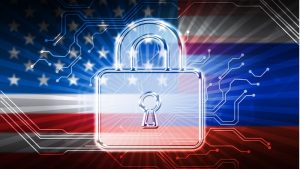The Cyber Navigators Act, H.R. 8011, would provide additional election-specific IT support to provide help monitoring systems and digesting data from cybersecurity information sharing and analysis centers, said Rep. John Katko, R-N.Y., one of the bills cosponsors.
In the 20th century, literacy in reading, writing, and mathematics might have been the requisites to inform participation in democratic and economic systems, but over the past half century, a new form of necessary literacy has been emerging – cyber literacy.
The Election Infrastructure Government Coordinating Council (GCC) – which includes members of the U.S. Election Assistance Commission (EAC) and informs how the Department of Homeland Security (DHS) works with state and local authorities to protect election systems critical infrastructure – declared on August 20 that the election community is fully prepared to handle the final stretch leading up to the 2020 general elections.
Three members of the Cyberspace Solarium Commission – Rep. Jim Langevin, D-R.I., Sen. Angus King, I-Maine, and Rep. Mike Gallagher, R-Wis. – introduced bicameral legislation to appropriate $28 billion in new Federal aid and establish programs to enhance state and local government modernization and cybersecurity.
To help universities protect COVID-19 research, Reps. Andy Barr, R-Ky., and Frank Lucas, R-Okla., introduced legislation to give those universities and research institutions tools to protect from cyberattacks by foreign cyber actors.
The Department of Homeland Security’s Cybersecurity and Infrastructure Security Agency (CISA) has released its Mail-in Voting in 2020 Infrastructure Risk Assessment to help with risk management of critical election systems.
COVID-19 has radically changed how state and local government (SLG) services are delivered and how their workforces operate. As employees moved from physical offices to their homes, government services had to be virtualized. This has presented SLG IT teams with a host of new concerns – chief among them is cybersecurity.
A California congressman has introduced a bill in the House to strengthen school districts’ cybersecurity by providing $25 million in grant funding over the next five years for that purpose.
Sen. Gary Peters, D-Mich., introduced two bills – the Continuity of Economy Act of 2020 and the National Guard Cyber Interoperability Act of 2020 – with the goal of bolstering the United States’ cyber defenses.
The Government Accountability Office (GAO) made several recommendations to the Office of Management and Budget (OMB) and others to improve coordination of cybersecurity requirements among Federal agencies to protect data shared with state government agencies.










